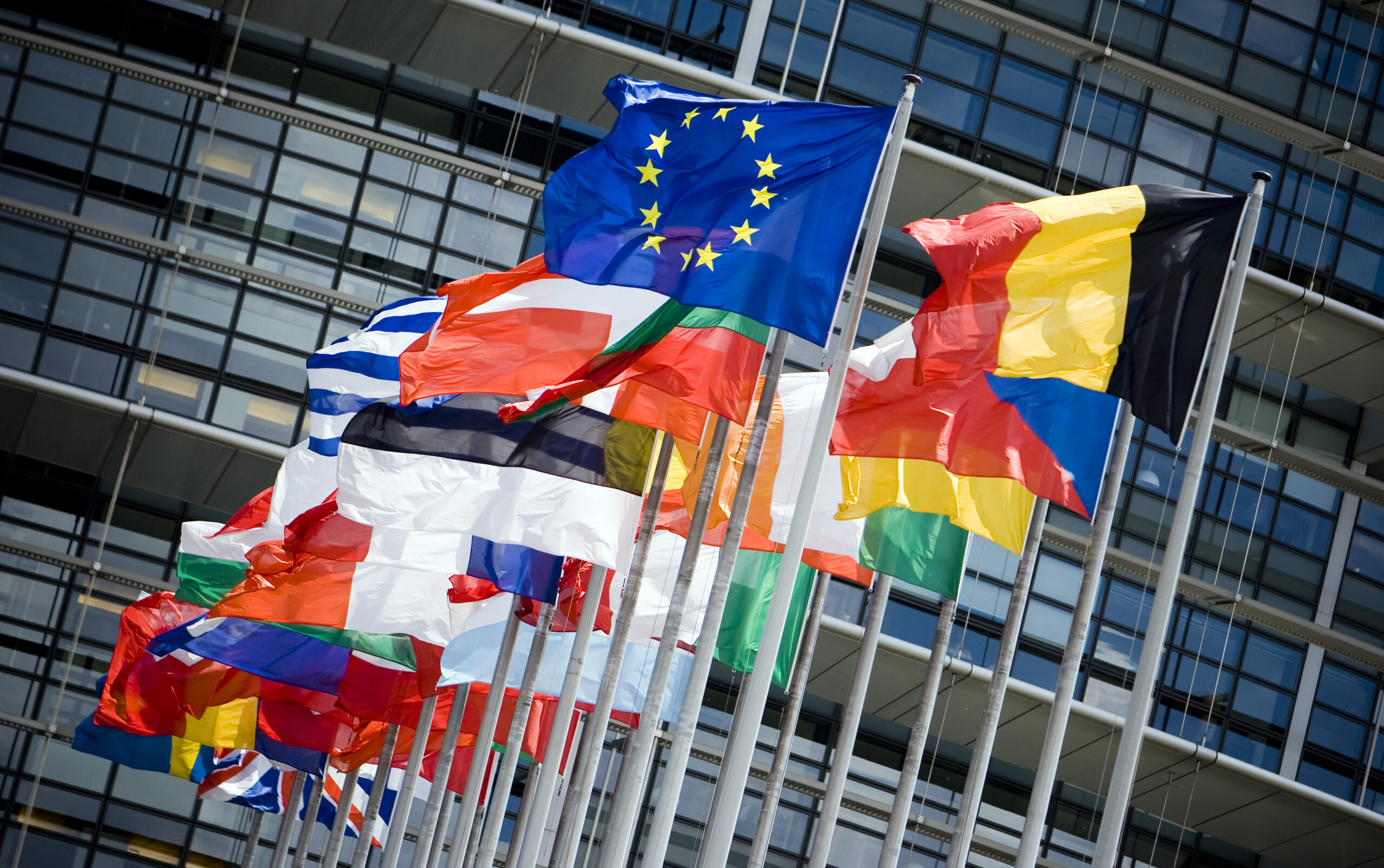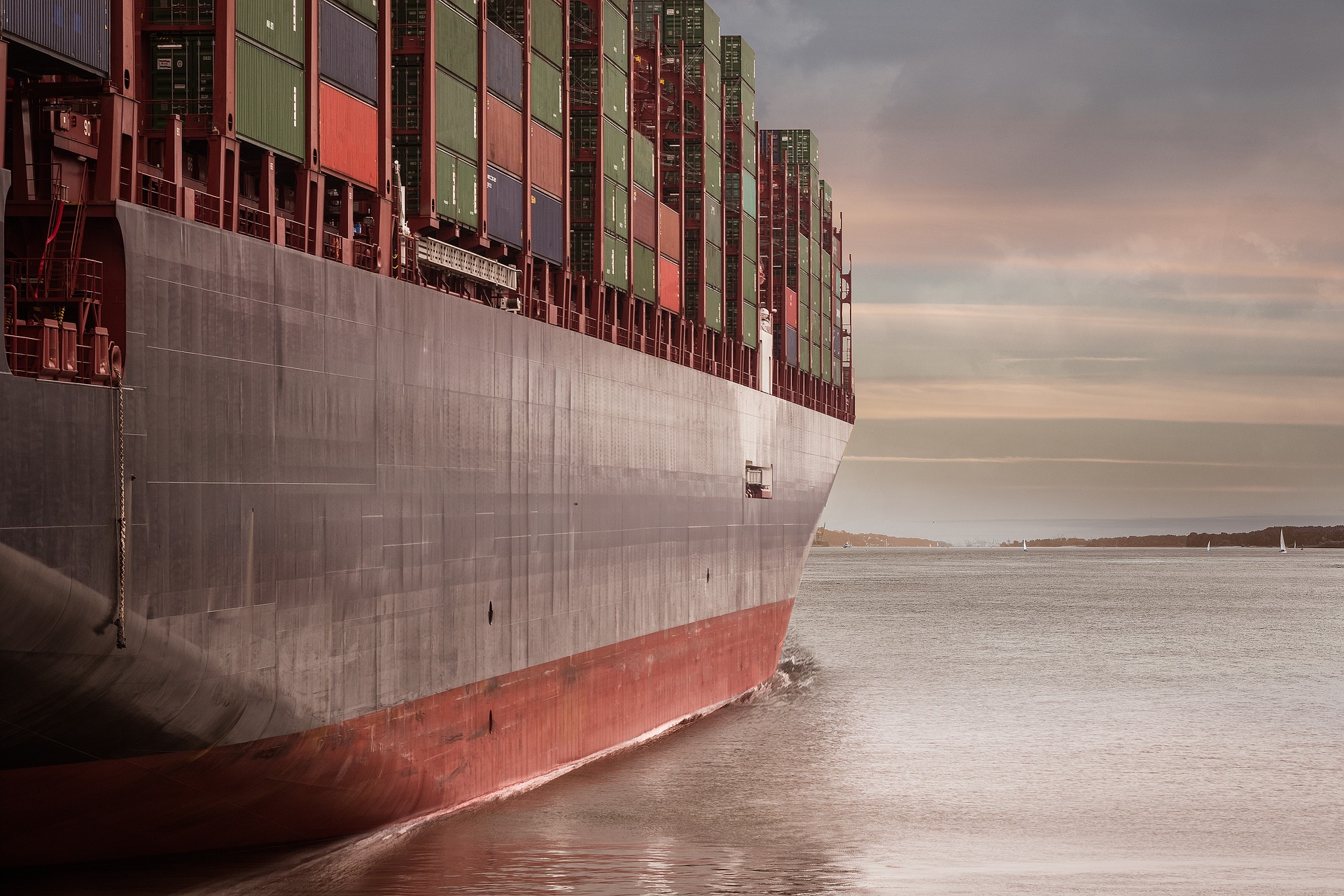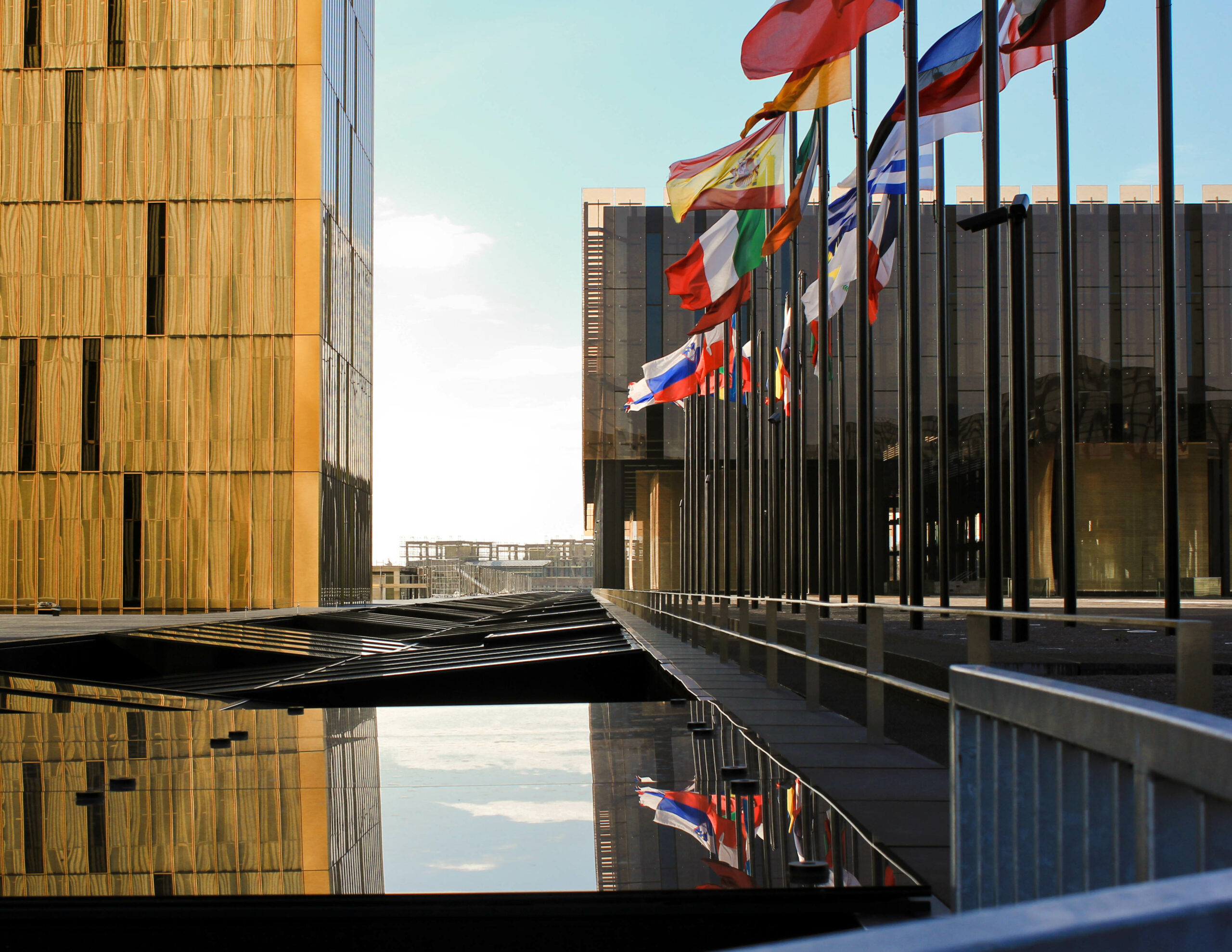Author Archive: Cedric Ryngaert

The EU Global Human Rights Sanctions Regime: How to Enforce Member States’ Compliance with Travel Bans?
In this second post in RENFORCE Blog’s special series on enforcement, Cedric Ryngaert highlights the Commission’s unsuccessful attempts to expand its limited enforcement powers over travel bans in the context of the recent adoption of the Global Human Rights Sanctions Regime. If centralized EU-level enforcement of travel bans is desirable, how might it be secured: through treaty change, or political pressure?
Read more
US sanctions against persons involved in the construction of the Nord Stream 2 pipeline project: Europe’s energy sovereignty under threat – Part II
By Cedric Ryngaert and Tom Ruys
In our previous post, we have argued that the imposition of US sanctions on persons involved in the construction of the Nord Stream 2 (NS2) pipeline between Russia and Germany is in tension with the customary international law of jurisdiction, insofar as such sanctions go beyond mere access restrictions and involve, for instance, the blocking (freezing) of assets. In this second post, we review the permissibility of US NS2 sanctions under two other, trade-related regimes, namely the law of the World Trade Organization (WTO) and the bilateral Friendship, Commerce and Navigation Treaty between the US and Germany of 1954. We argue that various NS2 sanctions – including access restrictions – potentially violate US obligations under these regimes, and that, on this basis, Germany could trigger international dispute-settlement with the US.
Read more
US sanctions against persons involved in the construction of the Nord Stream 2 pipeline project: Europe’s energy sovereignty under threat – Part I
By Cedric Ryngaert and Tom Ruys
The United States have recently enacted legislation sanctioning persons involved in the construction of the Nord Stream 2 (NS2) pipeline, which will transport gas from Russia to Germany through the Baltic Sea and is central to the EU’s energy policy (see here). (Non-US) persons involved in the construction of the Nord Stream 2 pipeline are subject to US sanctions under the Countering America’s Adversaries Through Sanctions Act, the Protecting Europe’s Energy Security Act, and the Protecting Europe’s Energy Security Clarification Act. These sanctions are aimed at putting pressure on persons to withdraw from the NS2 project, and ultimately to scuttle it. In August 2020, things came to a head after three US senators sent a letter to a German port-operating company supporting the NS2 project. The senators warned that the port, the company and its officers exposed themselves to ‘crushing legal and economic sanctions’ by the US.
Read more
Implementing the right to erasure: the judgment of the EU Court of Justice in Google v CNIL
By Cedric Ryngaert and Mistale Taylor
On 24 September 2019, the Court of Justice of the EU (CJEU) rendered its judgment in Google v CNIL on the geographic scope of implementation of the right to erasure (also known as the right to be forgotten or the right to be de-referenced). The judgment has received substantial media coverage (see, e.g., here and here), but press reports have paid little attention to its legal nuances. This blogpost provides such legal analysis, and reflects on the jurisdictional aspects of the judgment, in particular on the territorial reach of decisions to de-reference search results. The post argues that the CJEU deserves credit for displaying jurisdictional reasonableness, and on that basis rejecting an obligation for search operators to de-reference search results on all versions of their search engine. However, the CJEU pays conspicuous deference to EU Member State authorities, and gives little specific guidance as to how exactly these authorities are to determine the scope of implementation of the right to erasure.
Read more
Europa versus Trump: hoe de Europese economische soevereiniteit te beschermen tegen Amerikaanse sancties
By Cedric Ryngaert
Premier Mark Rutte hield op 13 februari 2019 zijn veelgeprezen Churchill-lezing in Zürich. In commentaren ging veel aandacht uit naar het door hem voorgestane musculaire Europese buitenlands en veiligheidsbeleid, in het bijzonder naar zijn voorstel om Europese sanctiebesluiten met gekwalificeerde meerderheid mogelijk te maken. Premier Rutte lijkt daarbij ontzag te hebben voor hoe de Amerikanen het aanpakken, wanneer hij zich afvraagt wat we kunnen leren van de veel grotere impact van Amerikaanse sancties in vergelijking met de Europese. Net zoals de VS zou de EU volgens premier Rutte meer bereidheid moeten tonen om ‘marktmacht te koppelen aan politieke doelstellingen en economische belangen’. Het is echter niet de bedoeling dat Europa hiermee ‘de op regels gebaseerde multilaterale wereldorde’ met voeten gaat treden. Net omdat de VS dat met zijn ‘extraterritoriale’ en internationaal onrechtmatige sanctiebeleid weldoet, dient Europa de nodige maatregelen te nemen om het Europese bedrijfsleven en de Europese economische soevereiniteit tegen de Amerikaanse sancties te beschermen.
Read more
The European Production Order – Tackling the Problem of Enforcement Jurisdiction and Extraterritoriality in Cyberspace
 On April 17th, 2018, the European Commission proposed new legislation to facilitate and accelerate access to digital evidence across borders in criminal investigations. The proposal aims at providing enforcement authorities with new tools for cross-border investigations in the digital era. European Production and Preservation Orders (the Orders) would allow law-enforcement authorities of a Member State to compel service providers – both domestic and foreign – offering services in the European Union to disclose or preserve user data, regardless of the data’s location. With this proposal, the European Commission moves away from territoriality as the determinative factor for enforcement jurisdiction in cyberspace. Thereby it could possibly set an international precedent to modernize international law in the area of transborder access to e-evidence.
On April 17th, 2018, the European Commission proposed new legislation to facilitate and accelerate access to digital evidence across borders in criminal investigations. The proposal aims at providing enforcement authorities with new tools for cross-border investigations in the digital era. European Production and Preservation Orders (the Orders) would allow law-enforcement authorities of a Member State to compel service providers – both domestic and foreign – offering services in the European Union to disclose or preserve user data, regardless of the data’s location. With this proposal, the European Commission moves away from territoriality as the determinative factor for enforcement jurisdiction in cyberspace. Thereby it could possibly set an international precedent to modernize international law in the area of transborder access to e-evidence.

Rotten fisheries: EU Advocate-General finds EU-Morocco Fisheries Agreement incompatible with international law

Credit: Katarina Dzurekova (CC BY)
The validity and scope of EU-Morocco trade agreements with respect to Western Sahara – a territory occupied by Morocco – has kept the Court of the Justice of the EU (CJEU) rather busy lately. In 2016, in a case brought by the Front Polisario, a movement fighting for the national liberation of the people of Western Sahara (the Sahrawi), the CJEU ruled that the territorial scope of the EU-Morocco Liberalization Agreement, which liberalizes trade in mainly agricultural products, did not extend to Western Sahara (see for a comment on this blog here, and for other comments here, here and here). Currently, a request for a preliminary ruling, referred by a UK court, concerning the validity of the EU-Morocco Fisheries Partnership Agreement is pending before the CJEU. This Agreement gives EU vessels access to fisheries in Moroccan fishing zones, in return for which the EU provides Morocco with financial contributions. On its face, this Agreement appears to apply not only to the waters off the coast of Morocco proper, but also those off the coast of Western Sahara. The case raises issues of self-determination of the Sahrawi in respect of the exploitation of ‘their’ natural resources, and the role of the EU in this respect. In January 2018, Advocate-General (A-G) Wathelet of the CJEU delivered his opinion in the case, proposing that the Fisheries Agreement should be considered invalid on the ground that it violates the right to self-determination of the Sahrawi people. This post commends the opinion for its detailed, although not always accurate, engagement with international law, and highlights the political salience of the case.
Read more
The external effects of the EU’s regulation of sulfur dioxide (SOx) emissions
 On 10 November 2017, I had the honor to be the sole opponent for the (successful) public defense of Philip Linné’s doctoral thesis on ‘Regulating vessel-source air pollution: standard-setting in the regulation of SOx emissions’, at Gothenburg University (Sweden). The thesis concerns the regulatory response, at different scales, including notably the EU scale, to tackle the environmental and human health impacts caused by sulfur oxide (SOx) emissions from the exhausts of seagoing ships. In this post, I reflect on the international legality and especially the external effects of relevant ‘unilateral’ EU action to tackle SOx emissions, i.e., action that goes beyond what is required by international law. Building on, but also adding to Philip Linné’s insights, I argue that by taking unilateral action, the EU has accelerated the calendar for strengthening global environmental standards in respect of SOx emissions.
On 10 November 2017, I had the honor to be the sole opponent for the (successful) public defense of Philip Linné’s doctoral thesis on ‘Regulating vessel-source air pollution: standard-setting in the regulation of SOx emissions’, at Gothenburg University (Sweden). The thesis concerns the regulatory response, at different scales, including notably the EU scale, to tackle the environmental and human health impacts caused by sulfur oxide (SOx) emissions from the exhausts of seagoing ships. In this post, I reflect on the international legality and especially the external effects of relevant ‘unilateral’ EU action to tackle SOx emissions, i.e., action that goes beyond what is required by international law. Building on, but also adding to Philip Linné’s insights, I argue that by taking unilateral action, the EU has accelerated the calendar for strengthening global environmental standards in respect of SOx emissions.

The Polisario Front Judgment of the EU Court of Justice: a Reset of EU-Morocco Trade Relations in the Offing

Credit: Katarina Dzurekova (CC BY)
On 21 December 2016, the Court of Justice of the EU (CJEU) gave its appeals judgment in the politically contentious Polisario Front case. The Court overruled an earlier decision of the General Court (GC, 2015) and decided that the EU-Morocco trade agreement does not apply to the territory of Western Sahara, which is claimed by Morocco as its own (see Sandra Hummelbrunner and Anne-Carlijn Prickartz’s analysis). The Court then went on to dismiss the action for annulment brought against the EU Council decision endorsing the agreement by the Polisario Front, a national liberation movement representing the Saharawi population indigenous to Western Sahara. In so doing, the Court largely followed Advocate General Wathelet’s advisory opinion, at least its first part (see on this Katharine Fortin’s analysis over at the UCall blog). The dismissal of the Polisario Front’s action may appear to be a victory for the EU Council and Morocco. However, in a manner reminiscent of Pyrrhus’s battles with the Romans in the 3rd century BC, it may well turn out to be a loss, and in fact a boon for the Saharawi. Although the CJEU held that the Front did not have standing to dispute the EU Council decision, this determination precisely followed from the Court’s recognition of the people of Western Sahara’s right to self-determination and the attendant exclusion of the territory from the trade agreement. Henceforth, the EU Council and Morocco have no other choice than to exclude products from Western Sahara from their trade agreements.
Read more
Amerikaans Hooggerechtshof verklaart EU en haar lidstaten niet ontvankelijk in grote witwaszaak
 In de jaren ’90 smokkelden Colombiaanse en Russische trafficanten drugs naar Europa. Met de opbrengst kochten ze via tussenpersonen grote hoeveelheden sigaretten van het Amerikaanse bedrijf RJR Nabisco. Ze importeerden die vervolgens in Europa. Je zou verwachten dat de Europese Unie en haar lidstaten RJR voor dit witwassen van criminele opbrengsten in Europa zouden vervolgen. Begin 2000 stond het Europees strafrecht echter in zijn kinderschoenen. Centrale afdwinging bestond niet en de coördinatie van strafvervolgingen in Europa liet ernstig te wensen over. Om toch tot een vorm van centrale vervolging van RJR te komen vonden de EU (de Europese Gemeenschap indertijd) en haar lidstaten er niets beters op dan in 2000 als eisers op te treden in een procedure in de Verenigde Staten op basis van de RICO Act (Racketeer Influenced and Corrupt Organizations Act). Die wet was in 1970 aangenomen om de maffia aan te pakken. Hij geeft niet enkel een mandaat aan Amerikaanse autoriteiten om een strafprocedure tegen ‘racketeers’ zoals RJR te starten, maar staat slachtoffers van de activiteiten van racketeers ook toe een civiele claim in te dienen bij Amerikaanse rechtbanken. Een dergelijke procedure is overigens erg aantrekkelijk, aangezien de eiser een drievoudige ‘punitieve’ schadevergoeding kan verkrijgen (treble damages). De EU en haar lidstaten voerden aan dat zij schade hadden geleden door de activiteiten van RJR, met name zouden hun nationale sigarettenindustrieën en de Europese financiële instellingen benadeeld zijn, zouden belastinginkomsten misgelopen zijn door zwarte-marktverkoop van sigaretten, en zouden Europese munten instabiel geworden zijn.
In de jaren ’90 smokkelden Colombiaanse en Russische trafficanten drugs naar Europa. Met de opbrengst kochten ze via tussenpersonen grote hoeveelheden sigaretten van het Amerikaanse bedrijf RJR Nabisco. Ze importeerden die vervolgens in Europa. Je zou verwachten dat de Europese Unie en haar lidstaten RJR voor dit witwassen van criminele opbrengsten in Europa zouden vervolgen. Begin 2000 stond het Europees strafrecht echter in zijn kinderschoenen. Centrale afdwinging bestond niet en de coördinatie van strafvervolgingen in Europa liet ernstig te wensen over. Om toch tot een vorm van centrale vervolging van RJR te komen vonden de EU (de Europese Gemeenschap indertijd) en haar lidstaten er niets beters op dan in 2000 als eisers op te treden in een procedure in de Verenigde Staten op basis van de RICO Act (Racketeer Influenced and Corrupt Organizations Act). Die wet was in 1970 aangenomen om de maffia aan te pakken. Hij geeft niet enkel een mandaat aan Amerikaanse autoriteiten om een strafprocedure tegen ‘racketeers’ zoals RJR te starten, maar staat slachtoffers van de activiteiten van racketeers ook toe een civiele claim in te dienen bij Amerikaanse rechtbanken. Een dergelijke procedure is overigens erg aantrekkelijk, aangezien de eiser een drievoudige ‘punitieve’ schadevergoeding kan verkrijgen (treble damages). De EU en haar lidstaten voerden aan dat zij schade hadden geleden door de activiteiten van RJR, met name zouden hun nationale sigarettenindustrieën en de Europese financiële instellingen benadeeld zijn, zouden belastinginkomsten misgelopen zijn door zwarte-marktverkoop van sigaretten, en zouden Europese munten instabiel geworden zijn.

